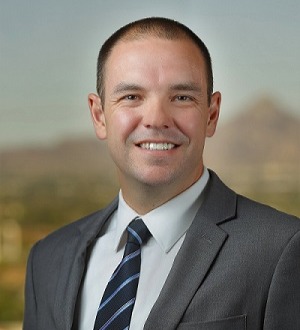Best Lawyers in Arizona, United States for Water Law
Practice Area Overview
Water use law practice starts at the fundamental level with the rights of owners of property abutting a surface water, i.e. riparian owners, to use water without unreasonably interfering with the rights of other riparian owners. This can involve both withdrawing and using water or diverting the flow of surface water. The withdrawal of groundwater is also regulated where necessary to avoid overuse of aquifers. A body of state statutes and regulations regulates certain uses of water, such as transfers of water from one river basin to another, withdrawal of groundwater from overused aquifers, impoundment of water, and construction of wells. In addition, the Federal Safe Water Drinking Act regulates the treatment of water by water supply systems.
Water pollution law practice is an extraordinarily complex area of common law and regulatory programs. It can involve areas of common law such as nuisance, trespass, and negligence, but more often it involves an interwoven and overlapping network of federal and state statutes and regulations. A partial list includes state laws regulating surface water discharges from point sources; sedimentation and erosion; stormwater runoff; land uses in nutrient-sensitive waters and water supply watersheds; and sources of groundwater pollution. Federal regulatory programs include regulation of wetlands and construction in navigable waters and establishment of total maximum daily loads in highly polluted surface water bodies.
Clients in this area of practice include local governments, utilities, private developers, and industries seeking to build or expand water supply and waste treatment facilities, or engaging in large land development projects involving wetlands, stormwater controls, and water-dependent uses such as docks and marinas.
Representation of such clients frequently involves compliance counseling to obtain agency permits, and sometimes includes administrative litigation when the agency denies approval or when another person challenges an approval. Water law practice also can involve litigation in court, sometimes in the form of appeals of agency decisions, penalties or orders and sometimes private party claims based on nuisance, negligence, trespass, interference with riparian rights, or citizens’ suits to address alleged violations of regulatory requirements.

Select a city from the list below to find the best legal talent for your needs.
Cities
Lawyers who have a subscription to profiles appear first.
Would you like to claim your lawyer profile?
Contact UsOur Methodology
Recognition by Best Lawyers is based entirely on peer review. Our methodology is designed to capture, as accurately as possible, the consensus opinion of leading lawyers about the professional abilities of their colleagues within the same geographical area and legal practice area.
The Process
Best Lawyers employs a sophisticated, conscientious, rational, and transparent survey process designed to elicit meaningful and substantive evaluations of the quality of legal services. Our belief has always been that the quality of a peer review survey is directly related to the quality of the voters.






